Discover the best Hawaiian Flower Names noted for their pleasing fragrance and stunning colors that’ll stand out in your yard!
Hawaii is home to amazing tropical flowers that are an integral part of its culture. The islands boast a myriad of beautiful hawaiian flowers that attract nature enthusiasts and photographers alike.
Check out our article on flowers that grow in Russia here
Hawaiian Flowers Names
1. Plumeria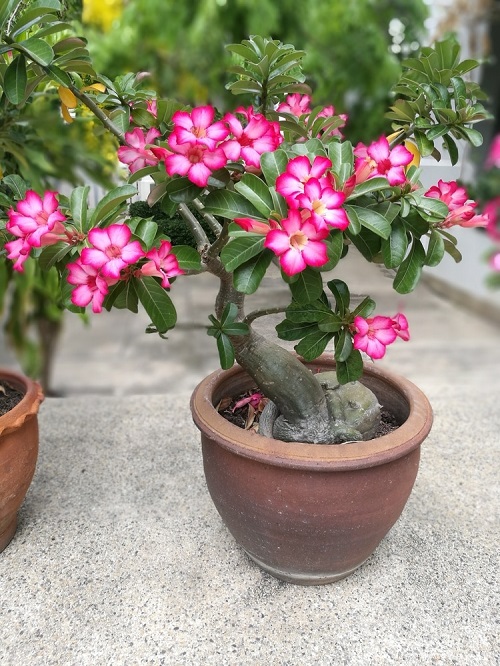
Botanical Name: Plumeria rubra
USDA Zones: 9-11
In Hawaii, plumeria blooms pink and purple flowers between April and November. The pods have the potential to produce flowers 365 days, depending on the location and climate.
Find out the Maryland Native Plant List here
2. Heliconia
Botanical Name: Heliconia rostrata
USDA Zones: 10-13
Also known as ‘Lobster claw,’ Heliconia is native to the belts of Costa Rica, Colombia, and Peru. It flowers yearly and can grow up to 12-16 feet tall.
3. Birds of Paradise
Botanical Name: Strelitzia reginae
USDA Zones: 10-12
It displays blue-green leaves with a red midrib, while the orange petals complement the thick evergreen foliage. These flowers in hawaii can grow up to 4-5 feet in height.
Learn about Getting Birds of Paradise to Bloom here
4.Hibiscus Hawaiian Flowers

Botanical Name: Hibiscus brackenridgei
USDA Zones: 9-10
Among the many native hawaiian flowers, this is perhaps the most iconic. Native to Hawaii, in 1988, yellow hibiscus was declared the national flower by the Hawaiian Government.
Here are different types of hibiscus that you can grow!
5. Ohia Lehua
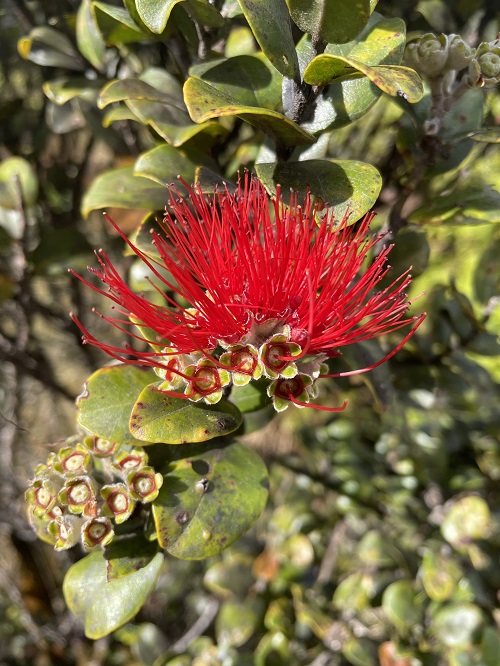
Botanical Name: Metrosideros polymorpha
USDA Zones: 9-11
These hawaii flowers bloom abundantly in Spring with salmon pink, white, yellow, red, and orange shades. The fruit of this plant is the favorite of Hawaiian honeycreepers.
6. Pikake
Botanical Name: Jasminum sambac
USDA Zones: 8-11
Pikake or Hawaiian Peacock Jasmine is a popular flower in Hawaii. This plant can be grown as a trailing vine or shrub. It flowers throughout the year in frost-free zones.
102 Best Blue Flowers For the Garden
7. Ilima
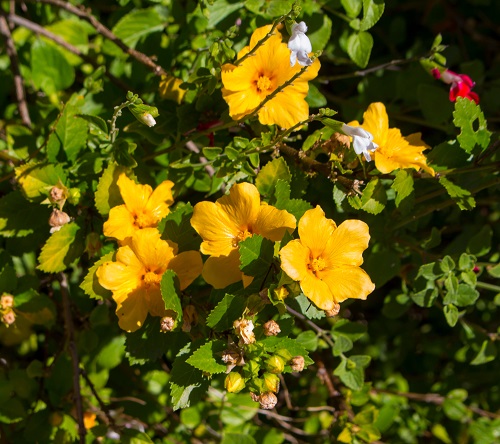
Botanical Name: Sida fallax
USDA Zones: 10-11
Ilima or ‘Black Coral’ can be found in the forests of O’ahu and Kaua’i. These flowers from hawaii produce a five-petal bloom in yellow to orange shade, setting it apart from the rest.
8. Red Ginger
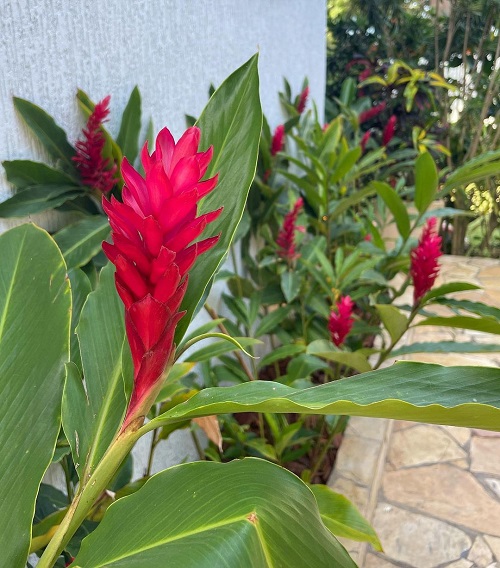
Botanical Name: Alpinia purpurata
USDA Zones: 8-11
These hawaian flowers are perfect for the climatic conditions in South Florida. Their floral bracts consist of pink, red, and white colors.
9. Anthurium
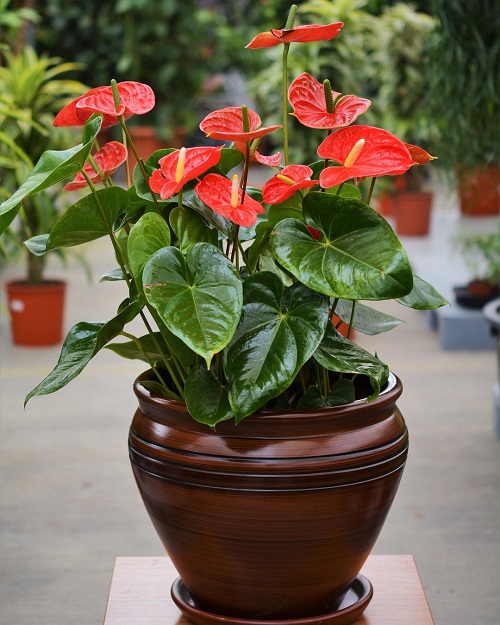
Botanical Name: Anthurium andraeanum
USDA Zones: 10-11
Anthuriums include more than 500 species and are available in red, purple, green, white, and pink shades. The leaf exhibits a glossy and waxy texture that may even look artificial!
Find the Anthurium Besseae Care Guide here
10. Passion Fruit Flower
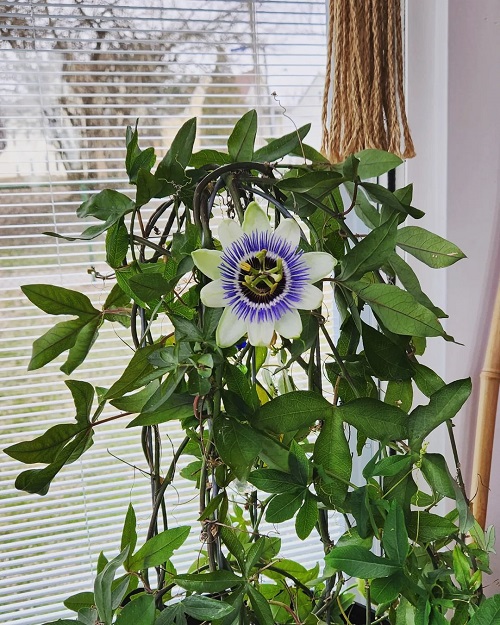
Botanical Name: Passiflora edulis
USDA Zones: 9-12
It has a distinct floral shape with oblong green sepals and white petals that form a fringe with a purple base and five stamens. It flowers in red, pink, white, purple, and blue color.
11. Naupaka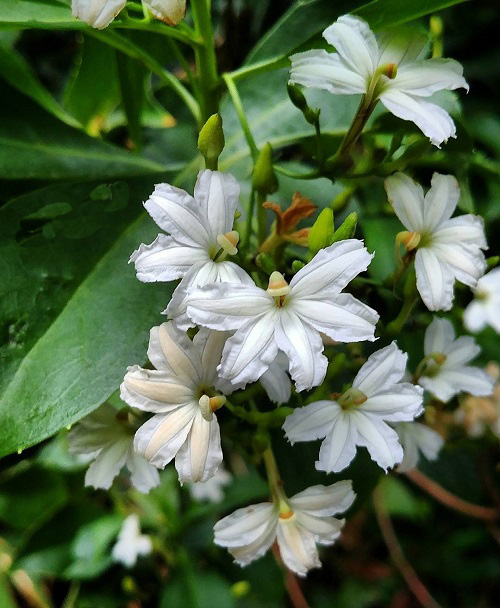
Botanical Name: Scaevola taccada
USDA Zones: 10-12
Naupaka is prized for its unique shape and fragrance. Two main varieties are available – One grows on beaches, and the other in the mountains.
12. Protea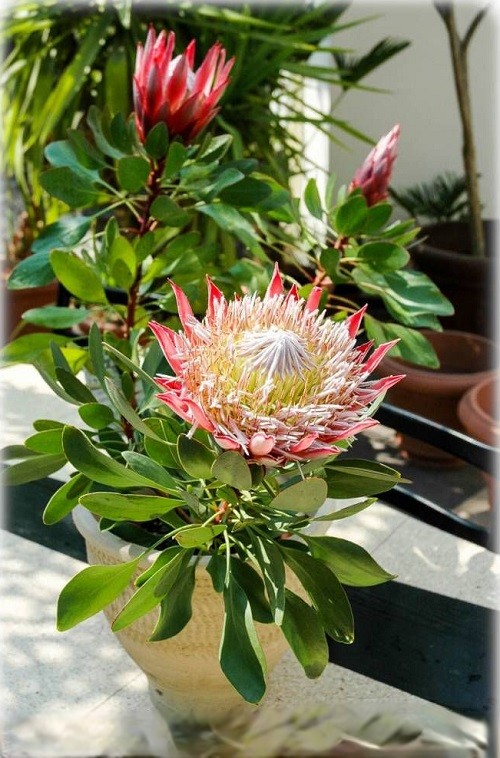
Botanical Name: Protea cynaroides
USDA Zones: 9-12
These hawaiian flowers are endemic to South Africa and was first planted in Hawaii in the 1970s. Its pink, yellow, and purple color is truly a sight to behold.
13. Kahili Ginger
Botanical Name: Hedychium gardnerianum
USDA Zones: 8-13
Kahili’s flowers are adorned with feathers and long flowing branches. The plant can grow up to 6-8 feet tall but remains small in containers.
Here’s a list of the best flowers that you can grow in Florida!
14. Uki Uki
Although the flowers are not ornamental, they look beautiful, with white to pale blue flowers against tall, slender leaves.
15. Nanu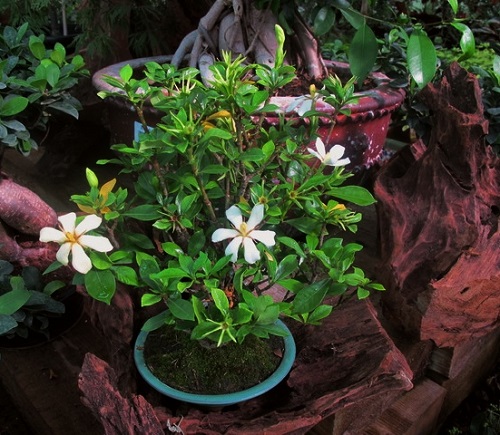
Botanical Name: Gardenia brighamii
USDA Zones: 8-11
Looking for types of hawaiian flowers that thrive easily in your home? Hawaiian Gardenia is endemic to Hawaii and belongs to the Coffee family of Rubiaceae.
16. Kanawao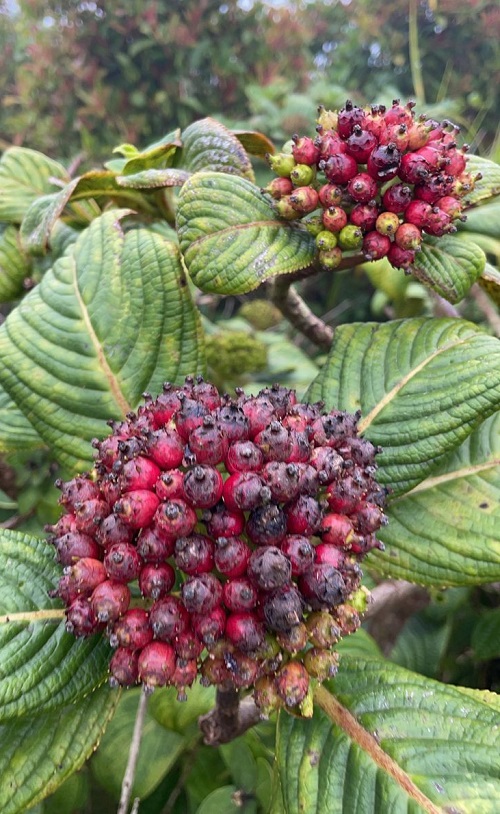
Botanical Name: Broussaisia arguta
USDA Zones: 8-11
Kanawao belongs to the Hydrangea family, which is endemic to the Hawaiian Islands. With showy hawaiian flowers, it is a long-lived plant that can reach 15-20 feet.
17. Pua Kala
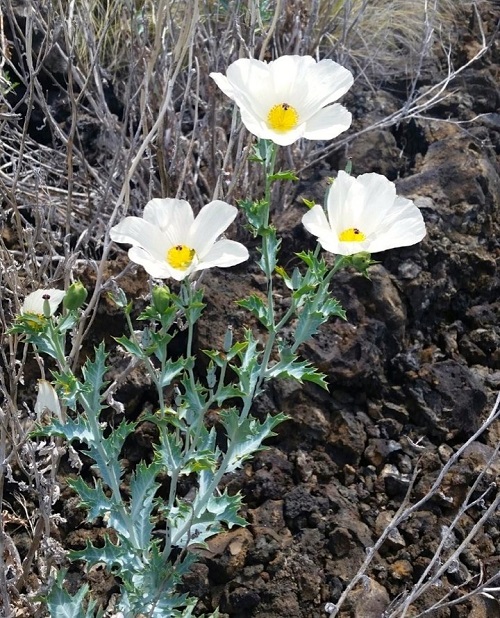
Botanical Name: Argemone glauca
USDA Zones: 6-10
Pua Kala is also known as Beach Poppy, Prickly Poppy, and Hawaiian Poppy. The huge hawaiian flowers are showy white with a bright yellow center.
18. Koʻoloaʻula
Botanical Name: Abutilon menziesii
USDA Zones: 9-11
With charming red, pink, purple, butter, salmon, and maroon-colored hibiscus-like flowers, it can be found in the dry forests of Hawaii Islands, O’ahu, Maui, and Lana’i.
19. Molokai Ohaha
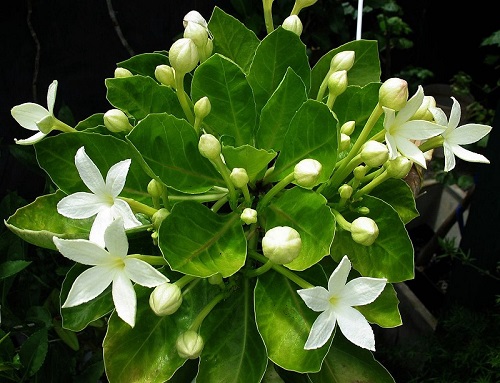
Botanical Name: Brighamia rockii
USDA Zones: 10-12
The Molokai Ohaha belongs to the Bellflower family and is endemic to Moloka’i Island. The trumpet-shaped, white, fragrant flowers look lovely against the shiny, green foliage.
20. Hina Hina
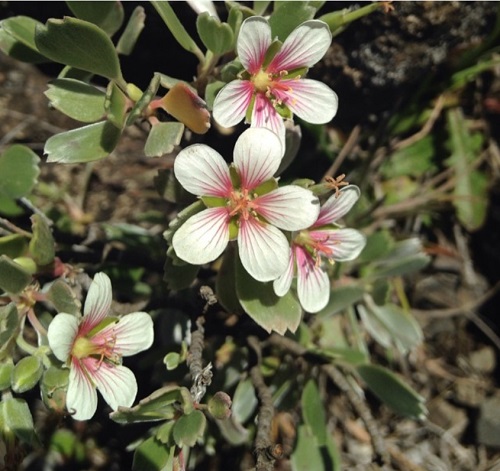
Botanical Name: Geranium cuneatum
USDA Zones: 9-12
Hinahina is common in drier, open areas at higher altitudes. Each flower comprises five egg-shaped, narrow, white-to-yellowish petals with purple-pink lines.
21. Mamane
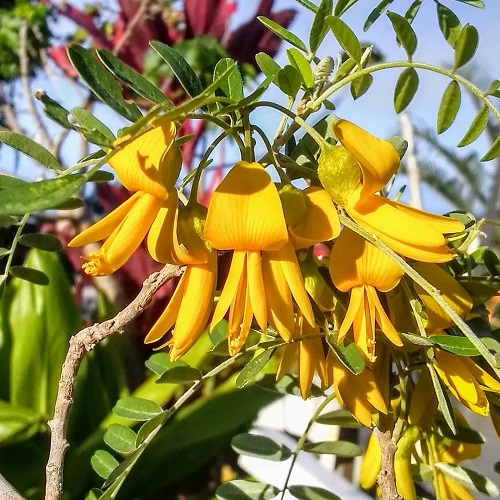
Botanical Name: Sophora chrysophylla
USDA Zones: 10-11
Mamane is a small tree that can grow up to 40-50 feet and belongs to Fabaceae’s Pea and Bean family. It looks stunning, with golden branches covered in yellow flower clusters.
Find out a List of the Best Australian Houseplants here
22. Oahu Pilo Kea
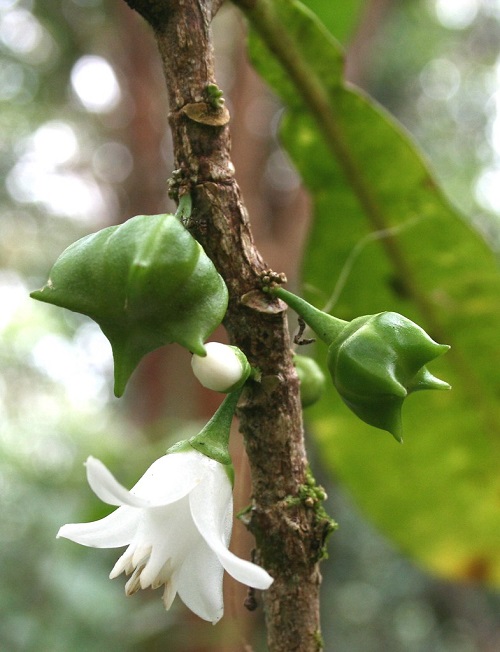
Botanical Name: Platydesma cornuta
USDA Zones: 8-11
Oahu Pilo Kea, also known as Alani, is another endangered species from the Island of Oahu. The flowers open up into waxy, white, bell-like petals.
23. Ma’ohi’ohi
Botanical Name: Stenogyne kamehamehae
USDA Zones: 11-12
Its vine-like growing habit does not harm other plants and helps repel damaging grazers. The long, curved flowers are in shades of purple, white, and magenta.
Stunning Greek Flowers for Garden and Home
24. Alulu
Botanical Name: Hillebrandia sandwicensis
USDA Zones: 9-11
Hawaii’s only known relic plant that survived for long, Alulu, belongs to the Begoniaceae family. These hawaiian flowers bloom from February-June.
25. Koki’o
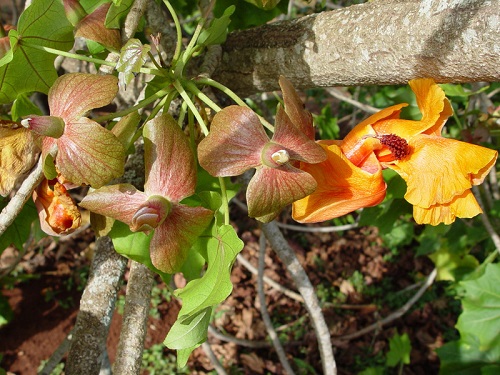
Botanical Name: Kokia cookei
USDA Zones: 9-11
Koki’o, also called Moloka’i Treecotton, is one of the rarest plants in the world, with only 23 grafted plants alive. These red hawaiian flowers look like Hibiscus.
Learn about the Native European Plants here
26. Hawaiian Iliau
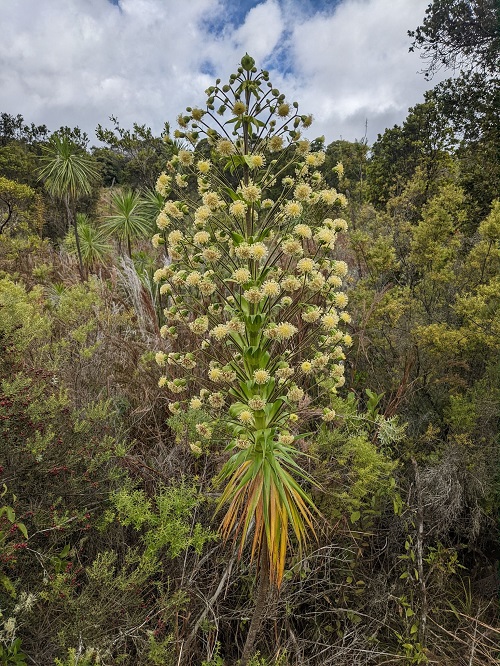
Botanical Name: Wilkesia gymnoxiphium
USDA Zones: 8-11
Hawaiian Iliau belongs to the Sunflower family of Asterachea, endemic to Kaua’i Island. These flowers of hawaii bloom daisy-like, yellow flowers from May to July.
27. Nehe
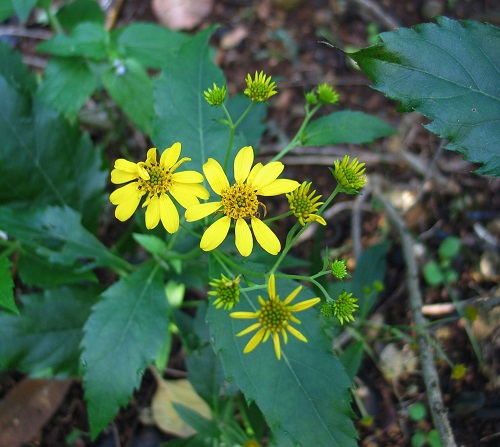
Botanical Name: Lipochaeta connata
USDA Zones: 7-11
Nehe, also known as Lipochaeta, belongs to the family of Daisy, which is endemic to Hawaii, particularly the Kaua’i and Ni’ihau Islands.
28. Ohe ‘ohe
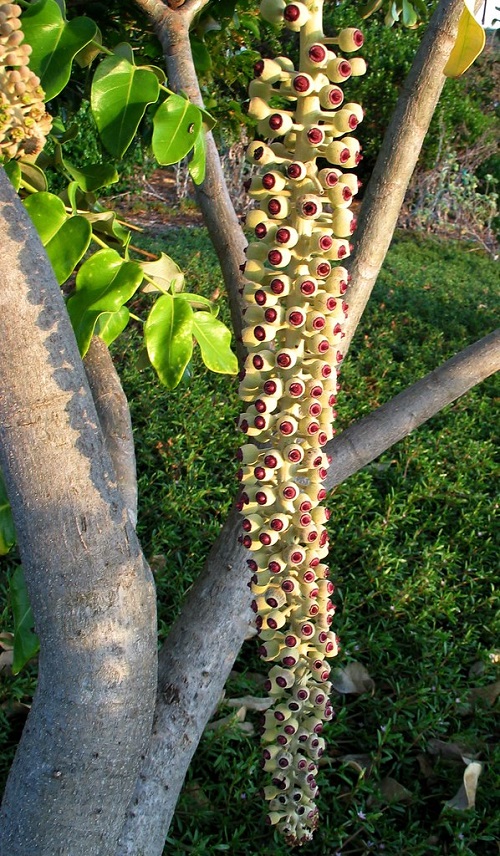
Botanical Name: Polyscias racemosa
USDA Zone: 8-11
Ohe ‘ohe, also called False Ohe, looks spectacular with small, pale yellow flowers hanging from the rope-like strands that the main straight trunk produces.
Types of Green Flowers | Green Flower Names
29. Cosmos flower Beggarticks
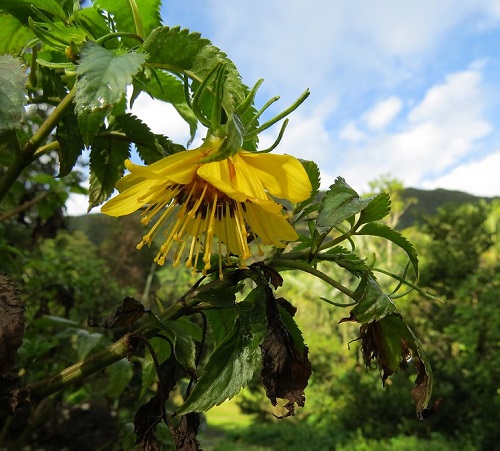
Botanical Name: Bidens cosmoides
USDA Zones: 8-11
It is endemic to Kaua’i island and is one of the largest from the Bidens genus. The plant looks attractive against thick, long stamens with bright yellow-orange flowers.
30. Hawaiian Red Cranesbill
Botanical Name: Geranium Arboreum
USDA Zones: 8-11
An endangered specimen among hawaiian flowers with only 50 plants alive, the Hawaiian Red Cranesbill belongs to Maui and can grow up to 10-13 feet in the wild.
Look at the Best Vines with Red Flowers here
31. Dendrobium Orchids
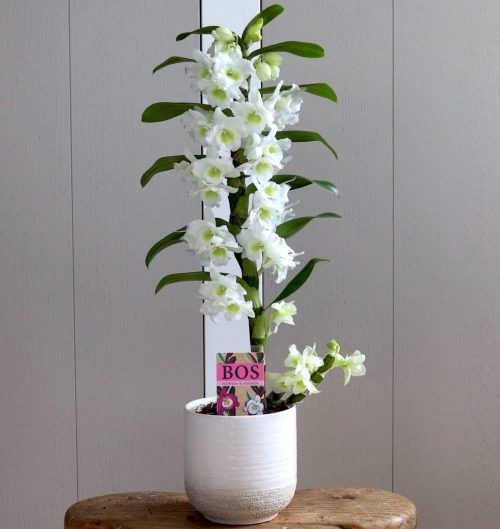
Botanical Name: Dendrobium
USDA Zones: 11-12
In the lush and vibrant landscapes of Hawaii, native Dendrobium orchids flower in soft lavender to pristine white hues!
32. Lokelani Rose
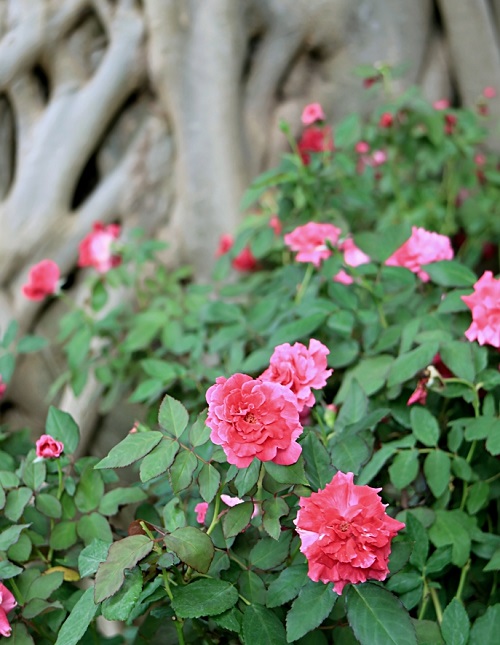
Botanical Name: Rosa damacena
USDA Zones: 9-11
Lokelani roses, known as the “heavenly rose flowers of hawaii, have a timeless elegance that captures the very essence of the islands.


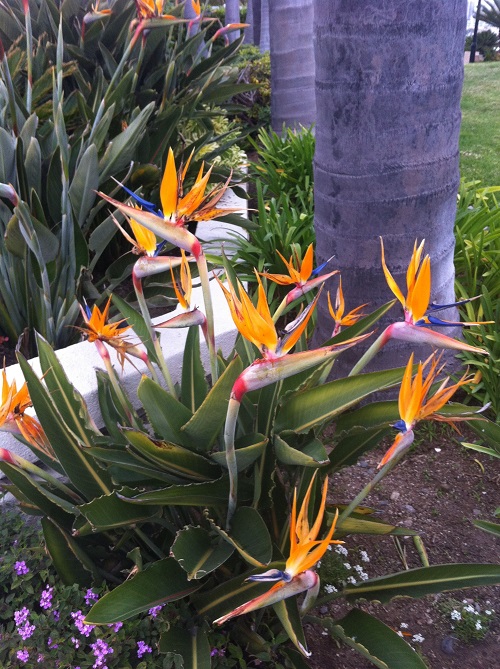
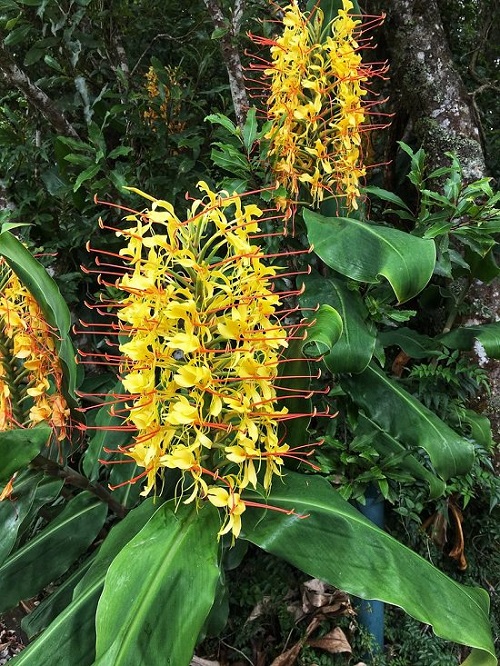
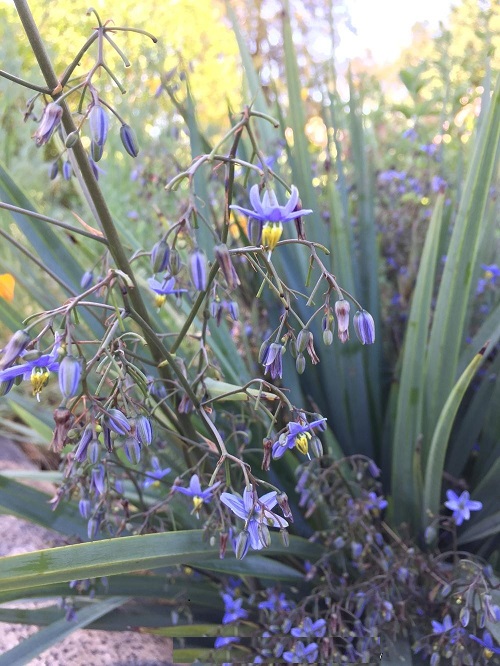
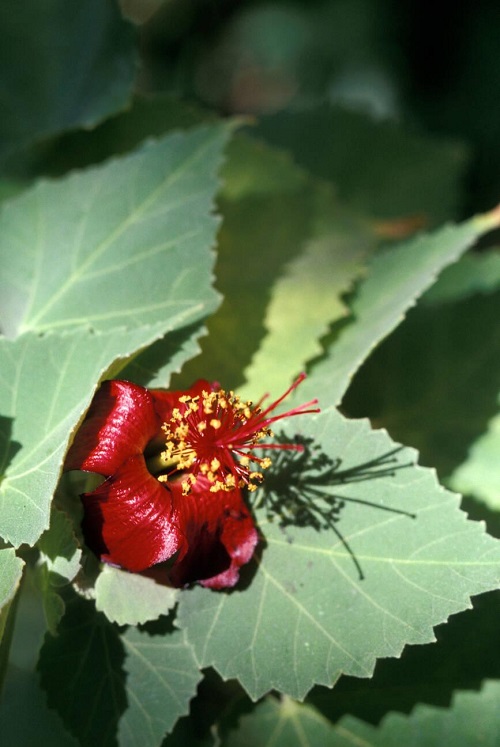
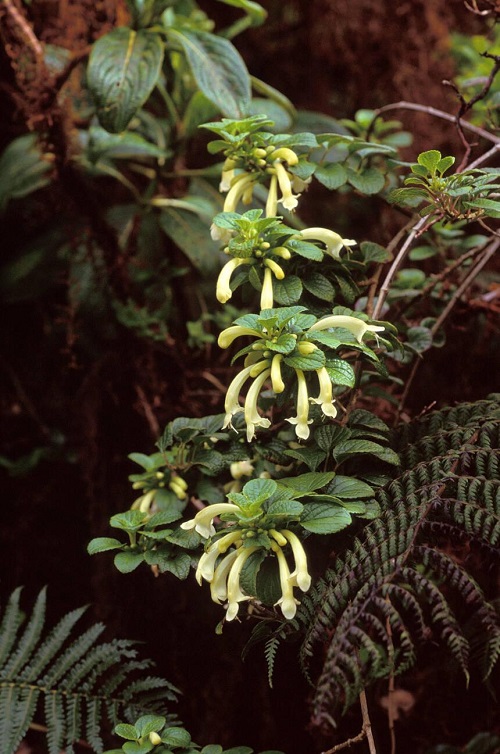

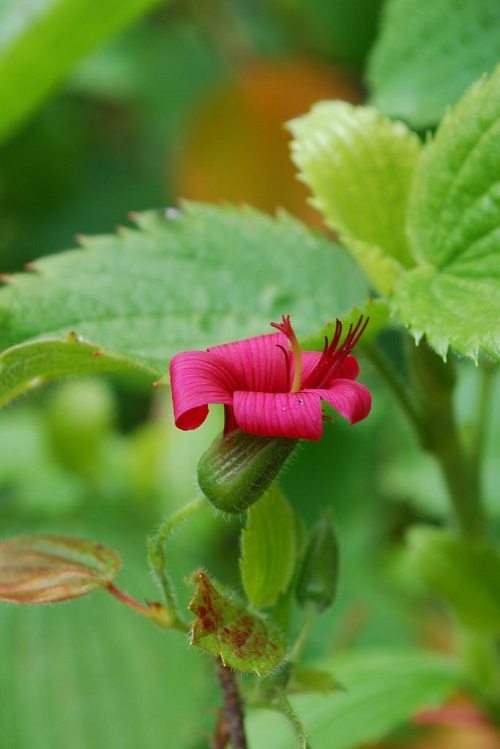

What is: Ola pua